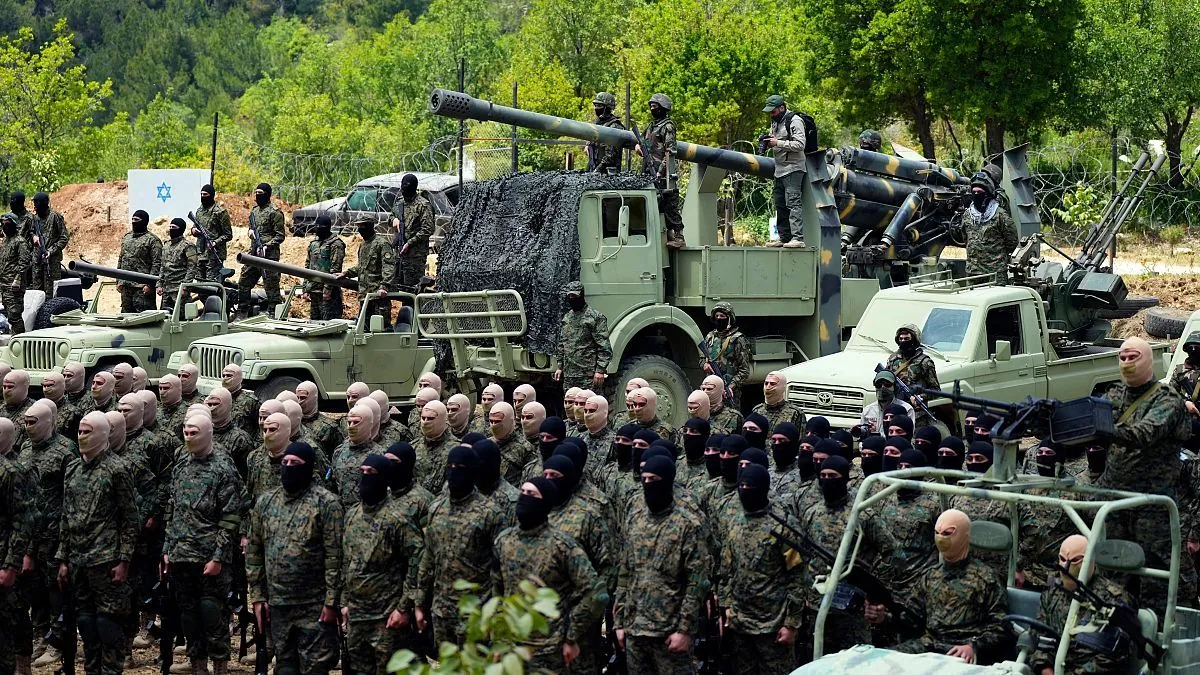Hezbollah, the Lebanese militant group, has experienced substantial losses in recent weeks, including the death of its long-standing leader, Hassan Nasrallah, in an Israeli airstrike. This event marks a significant turning point for the organization, which has been a major player in the region since its founding in 1985 during the Lebanese Civil War.
Two weeks ago, a devastating attack on Hezbollah's communications infrastructure resulted in 39 fatalities and nearly 3,000 injuries. The group, whose name translates to "Party of Allah" in Arabic, has attributed this incident to Israel. Since initiating attacks on Israeli military positions in support of Hamas last October, Hezbollah has lost approximately 500 fighters, with hundreds more likely casualties from recent Israeli bombardments.
Despite these setbacks, Hezbollah continues to demonstrate its military capabilities. The group has launched rockets into central Israel and introduced new weaponry, such as the Fadi-4 rockets. Mohammed Afif, Hezbollah's chief spokesman, has issued warnings of further attacks, particularly in the event of an Israeli ground invasion of Lebanon.
Hezbollah's military structure consists of five main units, each comprising several thousand fighters. These units are strategically deployed across Lebanon, with the Nasr and Aziz units positioned along the Israeli border. The organization's elite Radwan Force, numbering several thousand fighters, is partially stationed along the border as well.
The group's arsenal is extensive, reportedly including over 150,000 rockets and missiles, as well as various types of drones. This stockpile is believed to surpass that of many nation-states, highlighting Hezbollah's significant military capabilities. The organization has also demonstrated proficiency in cyber warfare and maintains a complex network of tunnels along the Lebanon-Israel border.
Hezbollah's influence extends beyond military operations. The group has been involved in Lebanese politics since 1992 and operates its own television station, Al-Manar. It also provides social services in Lebanon, including healthcare and education, which has contributed to its support base.
The recent escalation of tensions has drawn in regional powers. Iran, a key supporter of Hezbollah, launched dozens of missiles into Israel, citing Nasrallah's death as a motivating factor. This action followed Israel's announcement of limited ground operations against Hezbollah in southern Lebanon.
While Hezbollah has suffered significant losses in its leadership, including several high-ranking commanders, the group maintains a structured hierarchy. Hashem Safieddine, Nasrallah's cousin, is widely expected to assume leadership of the organization.
As the conflict intensifies, the international community watches closely. Hezbollah's designation as a terrorist organization by several countries and its alleged involvement in international terrorism and drug trafficking add complexity to the situation. The group's significant presence in South America's tri-border area and its youth organization, Mahdi Scouts, demonstrate its far-reaching influence.
The ongoing conflict between Hezbollah and Israel continues to shape regional dynamics, with both sides demonstrating their military capabilities and resolve. As the situation evolves, the potential for further escalation remains a concern for the international community.
"These attacks are only the beginning, and the militant group is waiting for invading forces to enter Lebanon to confront them."
